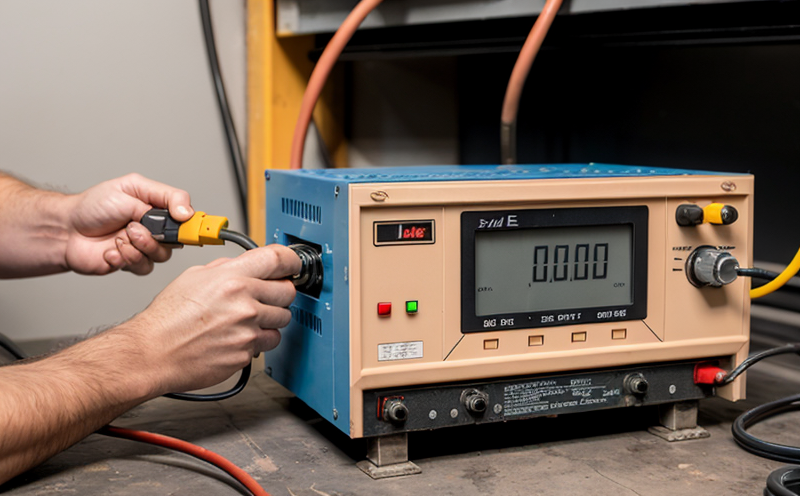IEC 62047-8 Micro Die Mechanical Testing
The IEC (International Electrotechnical Commission) standard 62047-8 provides a comprehensive framework for the mechanical testing of micro-dies, which are critical components in semiconductor and microchip manufacturing. This service ensures that these tiny but vital parts meet the stringent requirements set by industry standards to guarantee reliability and performance.
Micro-dies are the smallest dies produced in the semiconductor industry, typically measuring less than 1mm². Their small size makes them particularly susceptible to mechanical stress during packaging processes or operational conditions within devices. The IEC 62047-8 standard focuses on the mechanical robustness of these micro-dies by defining specific test procedures that simulate real-world stresses they might encounter.
The testing process involves several key steps, including die preparation, mounting onto a suitable fixture, and applying controlled loads to evaluate the die’s structural integrity. The tests are designed to mimic various potential failure modes such as bending stress or shear forces. By adhering strictly to IEC 62047-8 guidelines, manufacturers can ensure that their products meet not only regulatory requirements but also exceed them in terms of quality and reliability.
The results from these tests are crucial for several reasons:
- They provide valuable insights into the mechanical properties of micro-dies.
- They help identify areas where improvements can be made to enhance durability.
- They contribute to reducing failures in end products containing these components.
Applied Standards
The IEC 62047-8 standard is based on a combination of theoretical models and empirical data gathered from various sources. It integrates knowledge gained through extensive research and practical experience in the semiconductor industry. This integration ensures that the testing procedures are both scientifically sound and practically applicable.
Key standards referenced include:
- IEC 62047: Semiconductor Devices – Package Types
- ISO/TS 16949: Quality Management Systems for the Automotive Industry
- ASTM F3182-15: Standard Test Method for Mechanical Testing of Microelectronic Packages
The standard emphasizes the importance of traceability and reproducibility in testing results. It specifies detailed procedures for preparing specimens, applying loads, monitoring responses, and recording data. Compliance with these standards is essential for maintaining high-quality manufacturing processes that meet global regulatory requirements.
Scope and Methodology
The scope of IEC 62047-8 encompasses the mechanical testing of micro-dies across different types of packages used in semiconductor devices. This includes flip-chip, wafer-level chip-scale packages (WLCSP), and other advanced packaging technologies.
The methodology involves precise handling techniques to prevent damage during preparation and testing. Specimens are mounted securely using appropriate adhesives or clamps to ensure accurate load application without introducing additional stresses from the mounting process itself.
| Parameter | Description | Range |
|---|---|---|
| Loading Rate | The rate at which external forces are applied to the specimen. | 0.1 mm/min to 5 mm/min |
| Load Applied | The magnitude of force used during testing. | Up to 100N per square millimeter of die area |
| Environment Conditions | The temperature and humidity levels maintained during the test. | -40°C to +125°C, 20-80% relative humidity |
Data collected from these tests includes displacement measurements, force vs. deflection curves, and fracture locations. This comprehensive data set allows engineers to make informed decisions about design modifications needed for improved performance.
Industry Applications
- Automotive electronics: Ensuring reliability under extreme conditions.
- Military-grade electronics: Providing robustness against harsh environments.
- Consumer electronics: Enhancing durability and reducing warranty claims.
- Medical devices: Guaranteeing safe operation in critical applications.
The IEC 62047-8 standard is widely adopted by companies across various sectors due to its comprehensive approach towards mechanical testing of micro-dies. Manufacturers who adhere to this standard benefit from enhanced product quality, improved customer satisfaction, and reduced risk associated with substandard components.





